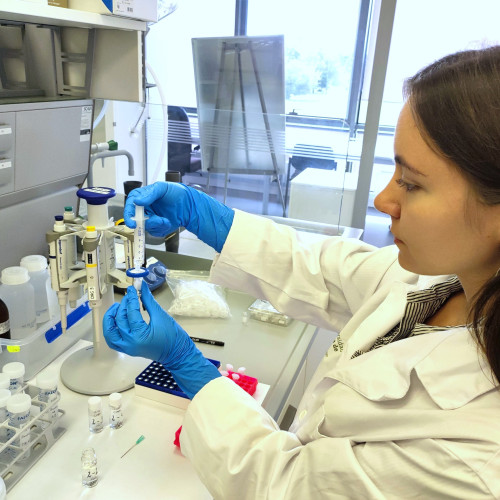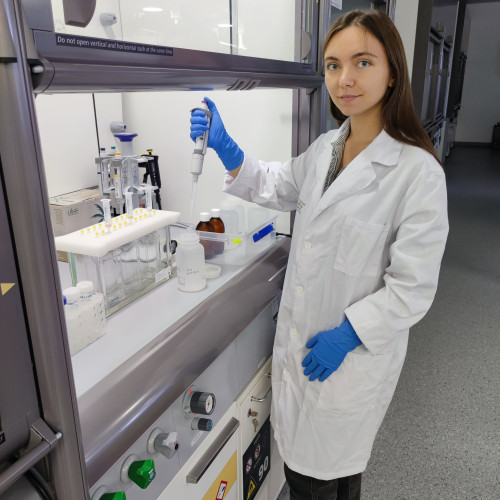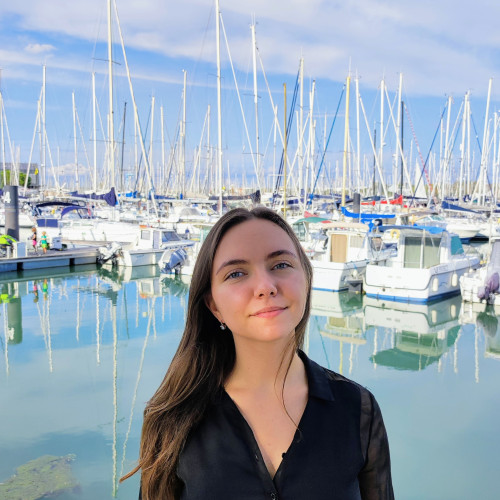EU-CONEXUS brings a new layer to the academic experience
EU- CONEXUS Joint Master Programme in Marine Biotechnology involves 9 universities from different corners of Europe. Even so, the opportunity to enter this study programme is highly limited, resulting in a competitive selection process. Aida was the only Lithuanian to succeed during that application period.
The most unique aspect of this study programme is the opportunity to individually choose the place of study, selecting between all alliance partners that take part in the programme. “Switching between different universities as studies progress allows students to learn from a large number of accomplished researchers, gain awareness of different local organizations and businesses, and put their knowledge to practice in different research facilities. It’s an invaluable experience, and obtaining a diploma signed by 6 rectors from different universities is a true honor“, Aida notes.
Prior to moving to La Rochelle, Aida spent the first semester of her studies in Valencia, Spain. But the University of La Rochelle left a strong impression during her first 6 months here, encouraging Aida to stay for another semester. “I’m impressed by the modern laboratories I get to work in and the work-life balance that the academic community maintains here. They have a lot of advanced equipment that allows me to learn and apply my knowledge on a high level, but once I leave the research facilities, a rich and diverse social life awaits as well. Even though the town itself isn’t big, there are many different concerts and other events taking place, and local organizations are very active as well. Besides, as a student I feel well supported when it comes to seeking out career opportunities, medical assistance, and other services that can be challenging to find when you’re not a local. The only real downside is that, to feel like you’re part of the local community, one must speak French”, Aida admits.
Even though studying French isn’t her main focus, Aida notes that there are other ways to explore the local culture – lifestyle and gastronomy, for example. “French pastries always appear fancy and delicate, but once you look past the aesthetics and focus on the production process, it’s really not that complicated”, she says. Clafoutis (a French dessert consisting of berries topped with fluffy batter) was her first successful creation, sparking a new passion for exploring the secrets of the French cuisine.
Master studies revealed the bottomless potential of Marine Biotechnology
“I’ve never been one to follow the crowd”, Aida admits when asked about her choice of this study path. According to her, this way of thinking has opened many doors throughout her life, and the years that followed the start of her academic journey are no exception. “Nobody in my surroundings and social circles has anything to do with marine sciences, or biotechnology for that matter. My mom is the only science major I know, but her focus lies in food technology and chemistry. From that perspective, biotechnology always seemed like an entirely new sphere where there’s still so much to discover”, she says.
According to Aida, to many people the sea is still just a body of water, a holiday destination and a source of seafood. But to her, it’s an object of wonder and a keeper of secrets that can only be uncovered through scientific exploration. Deep knowledge of biotechnology is key, as findings made during the analysis of structural and bioactive materials found in marine organisms can prove highly useful in a broad spectrum of industries, including pharmacy, cosmetics, chemistry, biomaterials and many more.
Her personal focus now lies in the production of natural products via the principle of a circular economy. “There’s still so much value in byproducts of fishing and water filtering, but most of them simply go to waste. Biotechnology plays an essential part here: it champions production and environmental awareness in parallel by repositioning the by-products of industrial operations as valuable resources that, with the right technology in use, can come to life in new forms”, she proudly sums up.
Brave ideas will require a supportive environment
Aida is still unsure of what her future will look like, but next semester she’ll already have to decide where the final stage of her Master’s studies – especially the research part of the thesis – will take place. For now, her eyes are set on European laboratories. “I really like exploring new lands and deepening my experiences through collaboration with established foreign researchers, but I would love to create my own future back home, in Lithuania. Foreign countries also offer more work opportunities and marine biotechnology is readily better integrated within the industry there, but if you flip the perspective upside down, Lithuania is a clean space where big things are yet to happen. There’s so much potential still“, Aida says.
Does that mean that the newly graduated Marine Biotechnology specialist will come back to Klaipėda? Aida admits that she doesn’t like to dream out loud… “I’m sure that hard-working and talented people can find their place anywhere they go, and Lithuania is no exception. Klaipėda has so much potential for developing into a strong hub of the blue economy as well.. Last summer I came back here for an internship sponsored by the Research Council of Lithuania, but is it really where my future belongs? Time will tell”, Aida admits.









